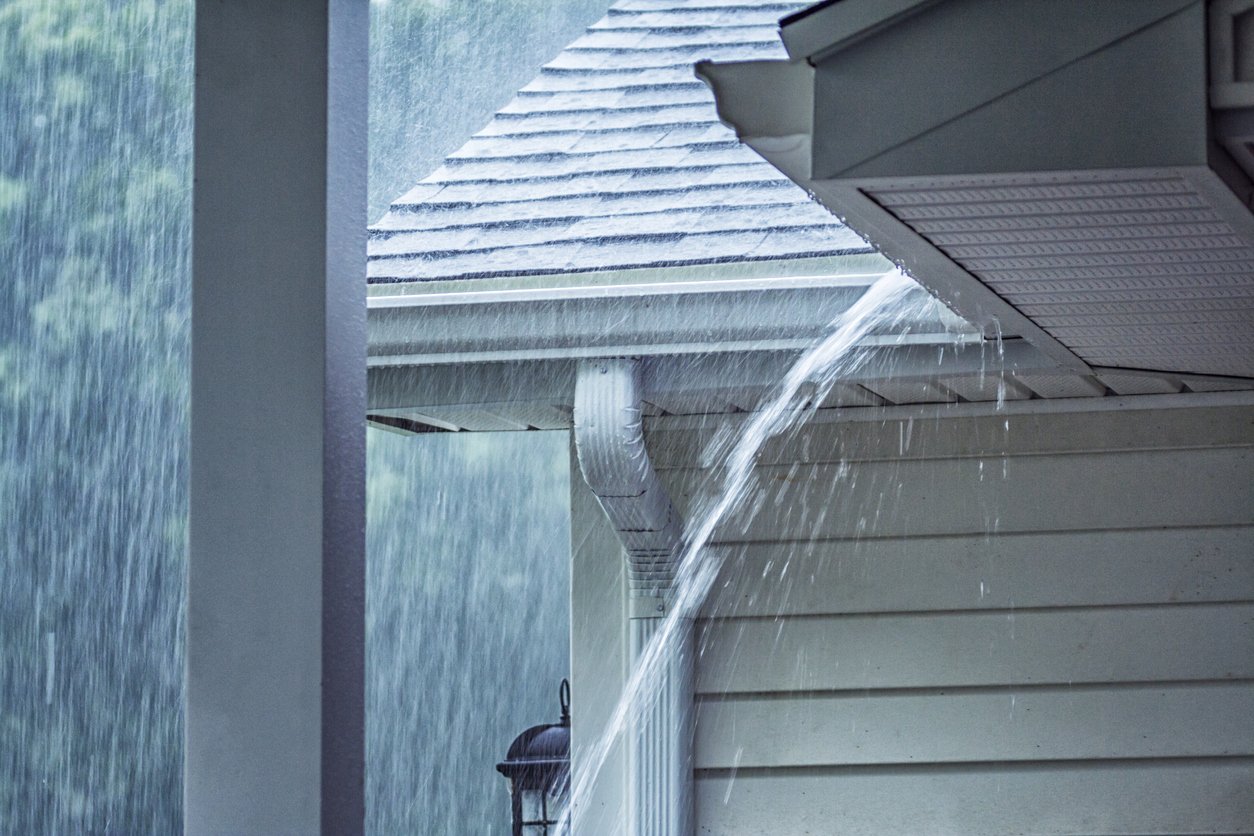
- calendar_month August 18, 2023
Introduction
Heavy rain can be both a blessing and a curse. While it nourishes the earth and sustains life, it can also pose significant challenges, especially to our homes. From leaky roofs to flooded basements, the effects of heavy rain can be damaging. However, with proper preparation, you can safeguard your home and loved ones from its potential harm. In this blog, we'll walk you through essential steps to prepare your house for heavy rain and ensure your peace of mind during the next downpour.
1. Clean and Maintain Gutters and Downspouts
One of the most critical steps in preparing your home for heavy rain is ensuring that your gutters and downspouts are clean and in good working condition. Clogged gutters can lead to water overflow, causing water to pool around your foundation and potentially seep into your basement. Regularly clear debris such as leaves, twigs, and dirt from your gutters and ensure that downspouts are directing water away from your home's foundation.
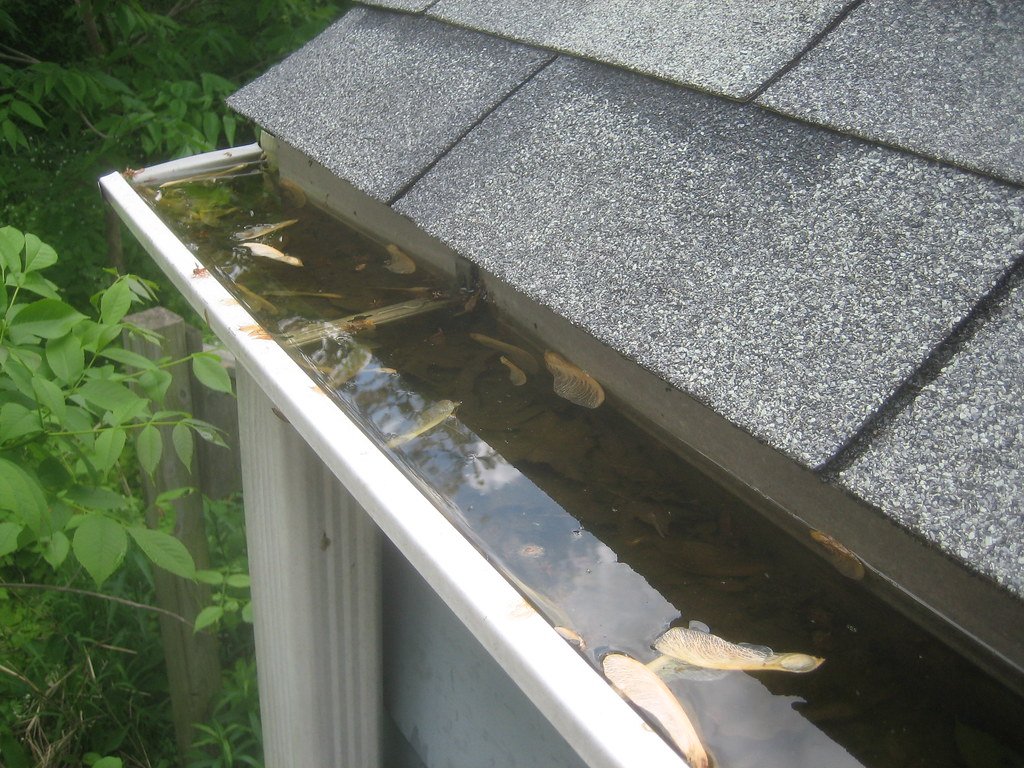
How to Clean Gutters - The Home Depot
2. Check and Repair the Roof
Your roof is your first line of defense against heavy rain. Conduct a thorough inspection to identify missing, damaged, or loose shingles. These vulnerabilities can lead to leaks, allowing water to penetrate your home. Address any issues promptly to avoid further damage during heavy rainfall. Consider applying a waterproof sealant to reinforce your roof's resilience against the elements.

DM ROOFING - 39 Photos - Lake View Terrace, California - Roofing - Phone Number - Yelp
3. Seal Windows and Doors
Water can infiltrate your home through gaps around windows and doors. Check for any cracks or gaps in the seals and use weather-stripping, caulk, or sealant to prevent water from seeping in. This not only helps during heavy rain but also improves your home's energy efficiency by keeping drafts out.

How to Seal and Insulate a Window and Door | DAP Global
4. Ensure Proper Grading and Drainage
The slope of your property, known as its grading, plays a vital role in preventing water accumulation around your home. If your yard slopes towards your house, heavy rain can lead to water pooling near your foundation. Consider regrading your yard to ensure that water naturally flows away from your home. Additionally, inspect your property's drainage systems, such as French drains and sump pumps, and ensure they are in good working condition.
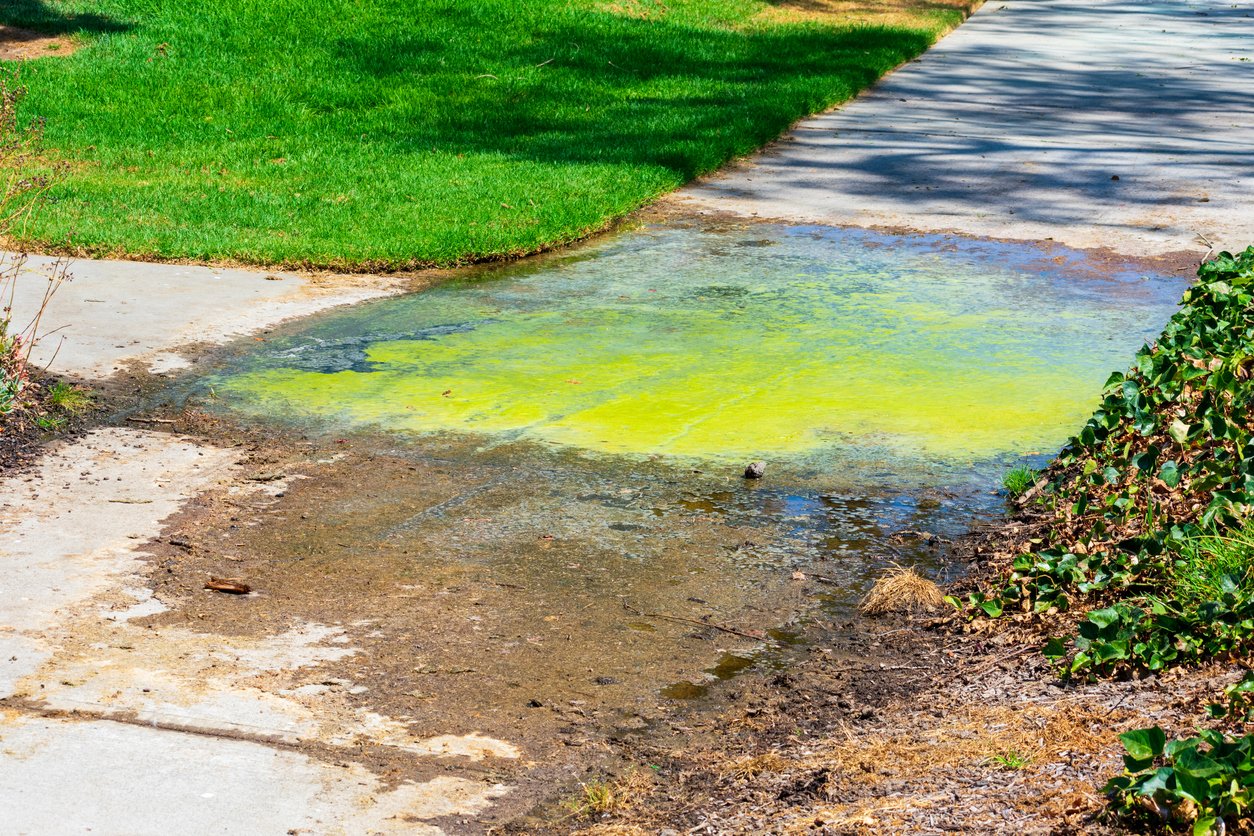
Proper Grading Around Your Home | MMSD
5. Maintain Landscaping
Trim back overhanging branches and trees that could potentially fall onto your home during heavy rain or wind. Remove dead branches that might break off and cause damage. Additionally, maintain your landscaping in a way that encourages proper water flow and prevents water from pooling near your home's foundation.
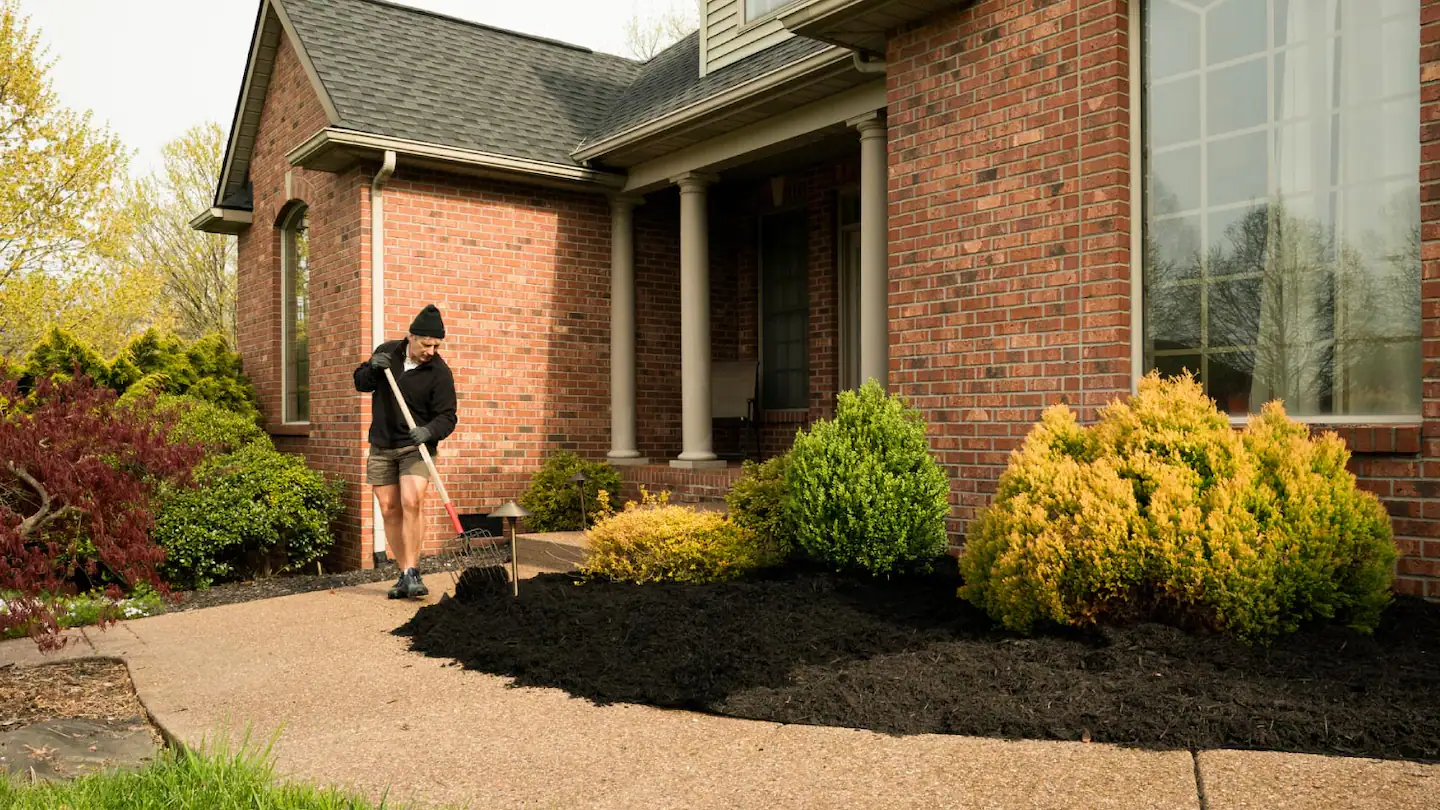
Garden Tool Sets - Gardening Tools - The Home Depot
6. Secure Outdoor Items
Patio furniture, grills, and other outdoor items can become projectiles during heavy rain and wind. Secure or store these items to prevent them from causing damage to your home or others during a storm.
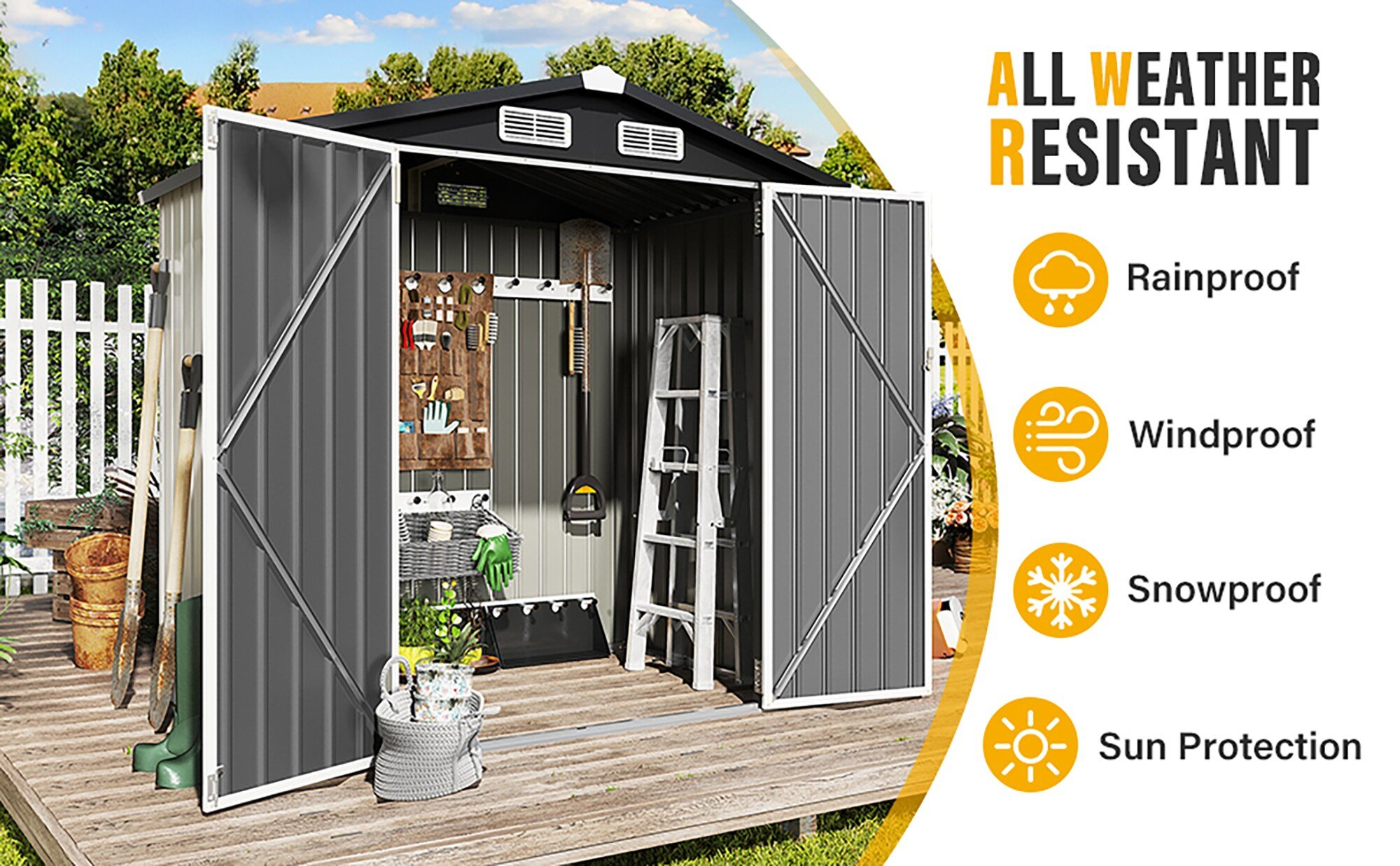
Waterproof Sheds & Outdoor Storage at Lowes.com
7. Consider Flood Barriers and Sandbags
If your area is prone to flooding, especially if you're in a low-lying zone, consider investing in flood barriers or sandbags. These can be strategically placed to redirect or absorb excess water and help prevent flooding inside your home.
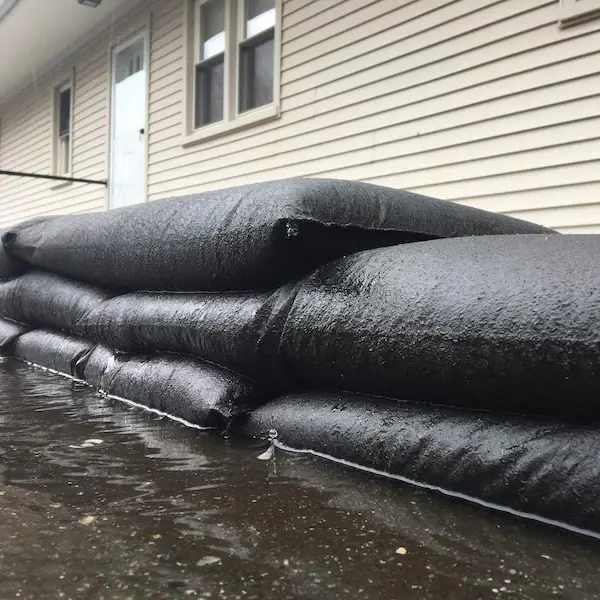
Best Sandbags For Flooding on Sale - Buy In Bulk – Sandbaggy
8. Emergency Kit and Action Plan
Prepare an emergency kit with essential supplies, including water, non-perishable food, flashlights, batteries, first aid supplies, and important documents. Develop an emergency action plan with your family, outlining where to go and what to do in case of flooding or other severe weather events.
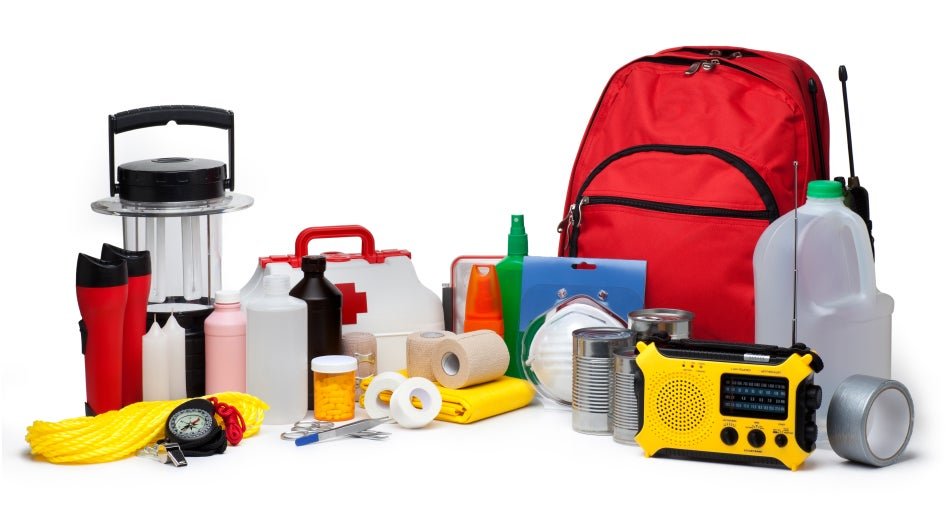
9 Best Survival and Emergency Preparedness Kits of 2023 - Reviewed (usatoday.com)
Conclusion
Heavy rain doesn't have to mean a deluge of problems for your home. By taking proactive steps to prepare your home for heavy rain, you can significantly reduce the risk of damage and ensure the safety and comfort of your family. Regular maintenance, timely repairs, and a well-thought-out emergency plan will go a long way in weathering the storm with confidence.
